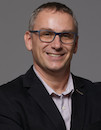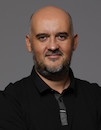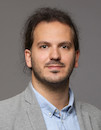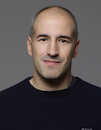Laboratory of Computer Engineering 1
Laboratory exercises
Course Description
Study Programmes
University graduate
General Competencies
In-depth understanding of the principles and theoretical background of advanced algorithms and data structures, computer controlled processes and multimedia systems required for solving engineering problems in the area of computer engineering. Ability to design and conduct analytic, modeling, simulation and experimental investigation. Ability to design solutions to problems that are unfamiliar, incompletely defined, and have competing specifications. Ability to formulate the problem and criticaly evaluate the solution. Practical experience with design, implementation, and deployment of computer systems.
Learning Outcomes
- solve typical problems in computer-process interaction using microcontrollers [Computers and processes]
- analyze solution applicability for certain process [Computers and processes]
- evaluate multimedia algorithms such as image and video compression algorithms, services based on multimedia content
- combine business rules into media applications
- design information storage and retrieval using advanced list and tree structures and hashing techniques
- design algorithms and optimisation routines
Forms of Teaching
Computers and processes: familiarizing the students with the tools used and results expected from lab assignments. MAS: Familiarizing with project goals, technologies available and expected outcomes.
Laboratory WorkComputers and processes: solving various problems by programming micro-controllers in a simulated environment
ConsultationsLecturers and teaching assistants are available for consult during by appointment and in designated terms.
Programming ExercisesComputers and processes: autonomous preparation for laboratory work by researching and solving various problems by programming micro-controllers in a simulated environment MAS: Implement microcomputer system similar to digital camera where image is taken and compressed to JPEG format, digitaly encrypted, transmitted over the network to desktop PC where decompression using smart card is performed and image displayed to the user.
Grading Method
| Continuous Assessment | Exam | |||||
|---|---|---|---|---|---|---|
| Type | Threshold | Percent of Grade | Threshold | Percent of Grade | ||
| Laboratory Exercises | 50 % | 100 % | 0 % | 0 % | ||
Comment:
Computers and processes: all laboratory exercises must be completed succesfully in order to pass the course. Course must be passed during the semester by turning in labwork at predetermined intervals; there are no mid-term nor final exams.
Week by Week Schedule
- Programming of advanced algorithms and data structures: (i) Programming and comparison of advanced list and tree structures for information retrieval, (ii) Programming and comparison of graphs-related algorithms, (iii) Programming and testing of selected optimisation routines
- Multimedia systems: Lab objective is to give practical knowledge about data compression of multimedia and evaluation of multimedia algorithms such as image and video compression algorithms, services based on multimedia content, embedding business rules into media applications. Implementation of test multimedia system and definition of usage and business rules.
- Computers and processes: laboratory exercises (programming micro-controllers in a simulated environment).
- Programming of advanced algorithms and data structures: (i) Programming and comparison of advanced list and tree structures for information retrieval, (ii) Programming and comparison of graphs-related algorithms, (iii) Programming and testing of selected optimisation routines
- Multimedia systems: Lab objective is to give practical knowledge about data compression of multimedia and evaluation of multimedia algorithms such as image and video compression algorithms, services based on multimedia content, embedding business rules into media applications. Implementation of test multimedia system and definition of usage and business rules.
- Computers and processes: laboratory exercises (programming micro-controllers in a simulated environment).
- Programming of advanced algorithms and data structures: (i) Programming and comparison of advanced list and tree structures for information retrieval, (ii) Programming and comparison of graphs-related algorithms, (iii) Programming and testing of selected optimisation routines
- Multimedia systems: Lab objective is to give practical knowledge about data compression of multimedia and evaluation of multimedia algorithms such as image and video compression algorithms, services based on multimedia content, embedding business rules into media applications. Implementation of test multimedia system and definition of usage and business rules.
- Computers and processes: laboratory exercises (programming micro-controllers in a simulated environment).
- Programming of advanced algorithms and data structures: (i) Programming and comparison of advanced list and tree structures for information retrieval, (ii) Programming and comparison of graphs-related algorithms, (iii) Programming and testing of selected optimisation routines
- Multimedia systems: Lab objective is to give practical knowledge about data compression of multimedia and evaluation of multimedia algorithms such as image and video compression algorithms, services based on multimedia content, embedding business rules into media applications. Implementation of test multimedia system and definition of usage and business rules.
- Computers and processes: laboratory exercises (programming micro-controllers in a simulated environment).
- Programming of advanced algorithms and data structures: (i) Programming and comparison of advanced list and tree structures for information retrieval, (ii) Programming and comparison of graphs-related algorithms, (iii) Programming and testing of selected optimisation routines
- Multimedia systems: Lab objective is to give practical knowledge about data compression of multimedia and evaluation of multimedia algorithms such as image and video compression algorithms, services based on multimedia content, embedding business rules into media applications. Implementation of test multimedia system and definition of usage and business rules.
- Computers and processes: laboratory exercises (programming micro-controllers in a simulated environment).


 Pristupačnost
Pristupačnost






